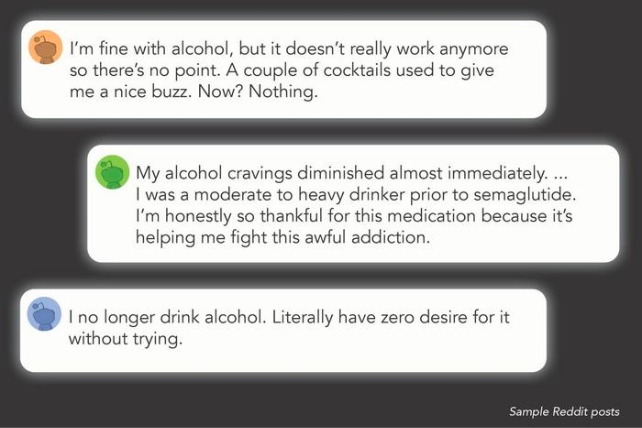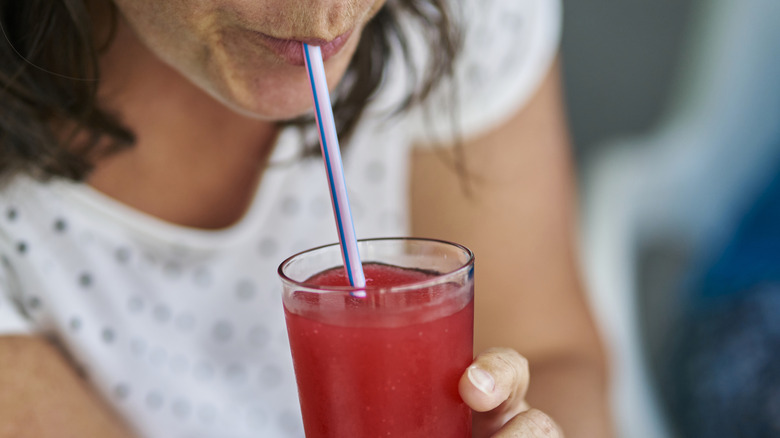Eating too many calories is commonly associated with a condition that impacts millions of people. This condition is often attributed to factors such as genetics, neurology, and environment, rather than just a lack of self-control. While obesity is one result of overconsumption, another consequence is alcohol use disorder, affecting an estimated 16 million people in the US. A new study reveals that some popular medications for obesity may have the side effect of reducing alcohol consumption and cravings. These findings have the potential to significantly impact the field, as only three drugs are currently FDA-approved for treating alcohol use disorder, and research shows they are underprescribed and have low effectiveness. Based on an analysis of social media posts on Reddit, individuals taking certain medications for type 2 diabetes and obesity reported a decreased desire to drink alcohol. The study involved a large dataset of 68,250 posts and comments from various ‘subreddits’, analyzed between 2009 and 2023. Using an extractor tool, researchers identified posts containing specific keywords associated with semaglutide or tirzepatide medications. After narrowing down the list, they analyzed 33,609 posts from 14,595 unique accounts, finding 1,580 alcohol-related posts by 962 individual accounts, the majority of which mentioned reduced alcohol consumption, decreased cravings, and negative effects from drinking. Statistical analysis indicated that individuals taking these medications experienced a significant decrease in alcohol use and cravings.
Semaglutide, marketed as Wegovy, Ozempic, and Rybelsus, is a glucagon-like peptide-1 (GLP-1) receptor agonist, mimicking the actions of hormones released after eating to lower blood sugar and energy intake. Tirzepatide, sold as Mounjaro and Zepbound, is a synthetic version of the hormone glucose-dependent insulinotropic polypeptide (GIP), stimulating the pancreas to secrete insulin and activating both GIP and GLP-1 receptors to improve blood sugar control. The study also conducted a ‘real-world’ analysis, surveying the alcohol consumption of 153 alcohol-drinking adults with obesity, split into three groups based on whether they were prescribed semaglutide, tirzepatide, or neither as a control group. Individuals taking semaglutide or tirzepatide were found to have significantly lower alcohol intake, fewer drinks per drinking episode, and a reduced likelihood of binge drinking compared to the non-medicated control group. The study acknowledges potential bias in the self-reported data, as the participants were primarily white females around 40 years of age, highlighting the need for further research involving more diverse populations to explore differences based on sex, age, and race. The researchers propose conducting randomized controlled clinical trials to investigate the potential of GLP-1 agonists and GIP/GLP-1 drugs for treating alcohol use disorder. While evidence supporting the use of these medications for alcohol use disorder is growing, the researchers emphasize the need for a better understanding of the underlying mechanisms and plan to contribute to these efforts. The research has been published in Scientific Reports.
Surprising Discovery: Weight Loss Drugs Like Ozempic May Impact Drinking Habits















